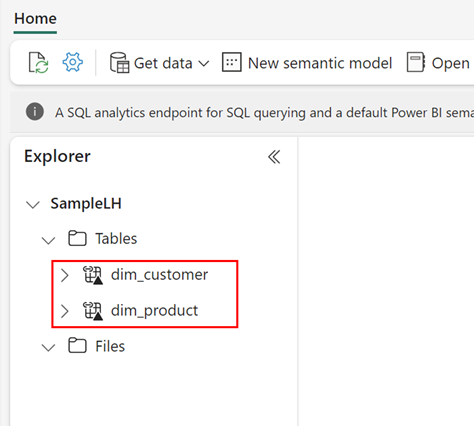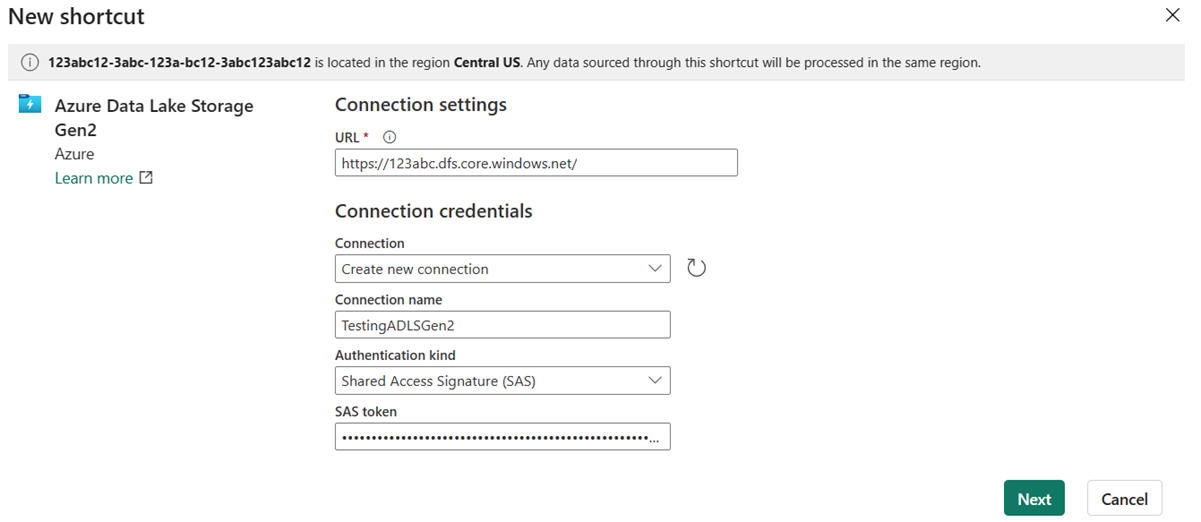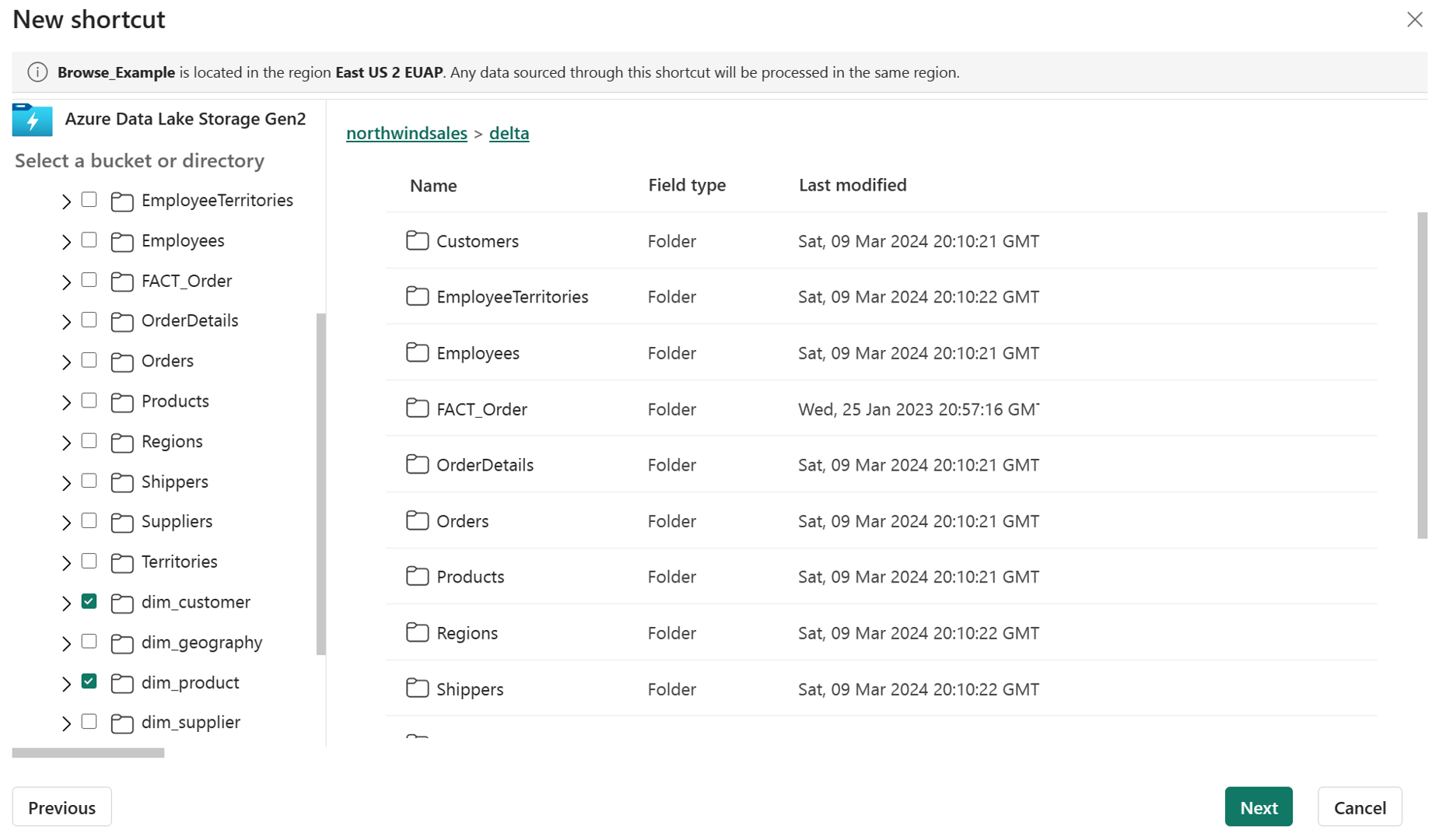Note
Access to this page requires authorization. You can try signing in or changing directories.
Access to this page requires authorization. You can try changing directories.
In this article, you learn how to create an Azure Data Lake Storage (ADLS) Gen2 shortcut inside a Microsoft Fabric lakehouse.
For an overview of shortcuts, see OneLake shortcuts. To create shortcuts programmatically, see OneLake shortcuts REST APIs.
Prerequisites
- If you don't have a lakehouse, create one by following these steps: Create a lakehouse with OneLake.
- You must have Hierarchical Namespaces enabled on your ADLS Gen 2 storage account.
Create a shortcut
Open a lakehouse.
Right-click on a directory within the Lake view of the lakehouse.
Select New shortcut.
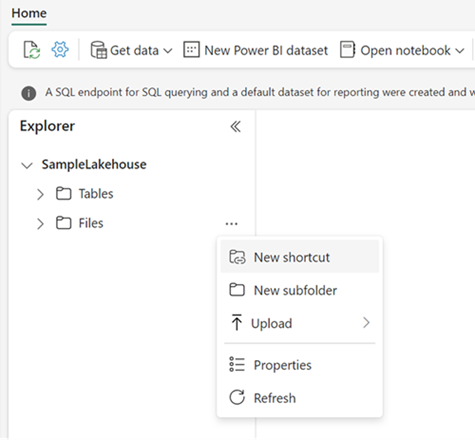
Select a source
Under External sources, select Azure Data Lake Storage Gen2.
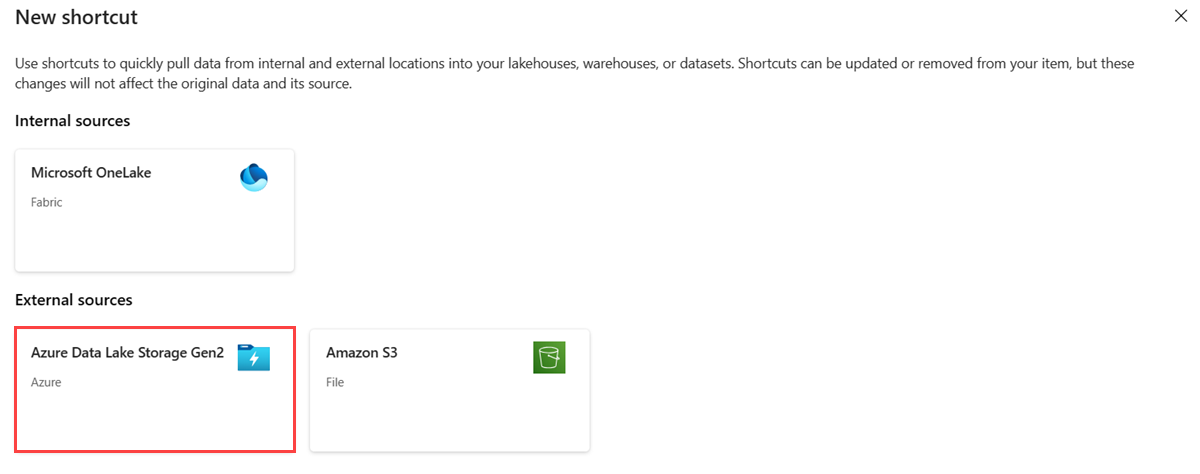
Enter the Connection settings according to the following table:
Field Description Value URL The connection string for your delta container. https://StorageAccountName.dfs.core.windows.netConnection Previously defined connections for the specified storage location appear in the drop-down. If no connections exist, create a new connection. Create new connection. Connection name The Azure Data Lake Storage Gen2 connection name. A name for your connection. Authentication kind The authorization model. The supported models are: Organizational account, Account key, Shared Access Signature (SAS), Service principal, and Workspace Identity. For more information, see ADLS shortcuts. Dependent on the authorization model. Once you select an authentication kind, fill in the required credentials. Select Next.
Browse to the target location for the shortcut.
If you just used the storage account in the connection URL, all of your available containers appear in the left navigation view. If you specified a container in connection URL, only the specified container and its contents appear in the navigation view.
Navigate the storage account by selecting a folder or clicking on the expansion arrow next to a folder.
In this view, you can select one or more shortcut target locations. Choose target locations by clicking the checkbox next a folder in the left navigation view.
Select Next
The review page allows you to verify all of your selections. Here you can see each shortcut that will be created. In the action column, you can click the pencil icon to edit the shortcut name. You can click the trash can icon to delete shortcut.
Select Create.
The lakehouse automatically refreshes. The shortcut appears in the left Explorer pane.
